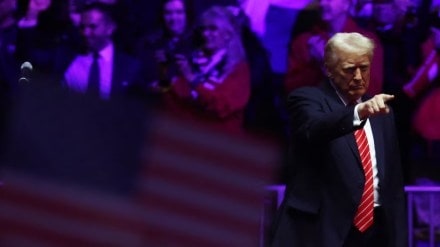Trump fires over a dozen watchdogs: US President Donald Trump dismissed 17 independent inspectors general from various government agencies on Friday, according to a source familiar with the matter. These watchdogs, responsible for investigating waste, fraud, and abuse in government, were terminated without prior notice, clearing the way for Trump to replace them with his preferred candidates.
Agencies Affected and Legal Violations
The fired inspectors general worked in key departments, including State, Defense, and Transportation. According to federal law, a president must provide Congress with 30 days’ notice and reasons for firing inspectors general. However, Trump reportedly did not follow this requirement.
Democratic Senate leader Chuck Schumer described the move as “a chilling purge” and warned it could weaken oversight of government agencies, allowing them to operate unchecked.
Bipartisan Concerns
Republican Senator Chuck Grassley, a strong advocate for inspectors general, demanded an explanation for the firings. He stated that there might be good reasons to do so, but they need to know what they are. Grassley also noted that Congress was not given the required 30-day notice.
Meanwhile, Democratic Senator Elizabeth Warren criticized the action as a deliberate effort to remove checks on Trump’s power. She called it “a purge of independent watchdogs” and warned it could lead to widespread corruption.
Trump Mass Firing: Reactions and Defenses
While many condemned the decision, Trump ally Sidney Powell defended the firings, arguing that inspectors general are ineffective and protect institutions rather than citizens. Powell suggested the system needed a complete overhaul.
Broader Context
Inspectors general are unique in that they can serve under multiple administrations, offering continuity and independent oversight. Trump has a history of clashing with these watchdogs, firing five during a two-month span in 2020.
This latest wave of dismissals coincides with Trump’s efforts to reshape the federal government. Reports indicate his administration is eliminating diversity programs, rescinding job offers, and sidelining national security and foreign policy officials.
In 2022, Congress strengthened protections for inspectors general, requiring presidents to justify their removal and making it harder to replace them with hand-picked officials. These measures aimed to ensure independent oversight, regardless of political shifts.
Similar controversies have occurred in the past. For instance, President Joe Biden dismissed an inspector general in 2022 for creating a hostile work environment.
Trump’s decision to fire these watchdogs has reignited debates about the role of inspectors general and the need for independent oversight in government. Critics fear this move could pave the way for unchecked power, while supporters argue for a fresh start in oversight mechanisms.
(With Reuters Inputs)
